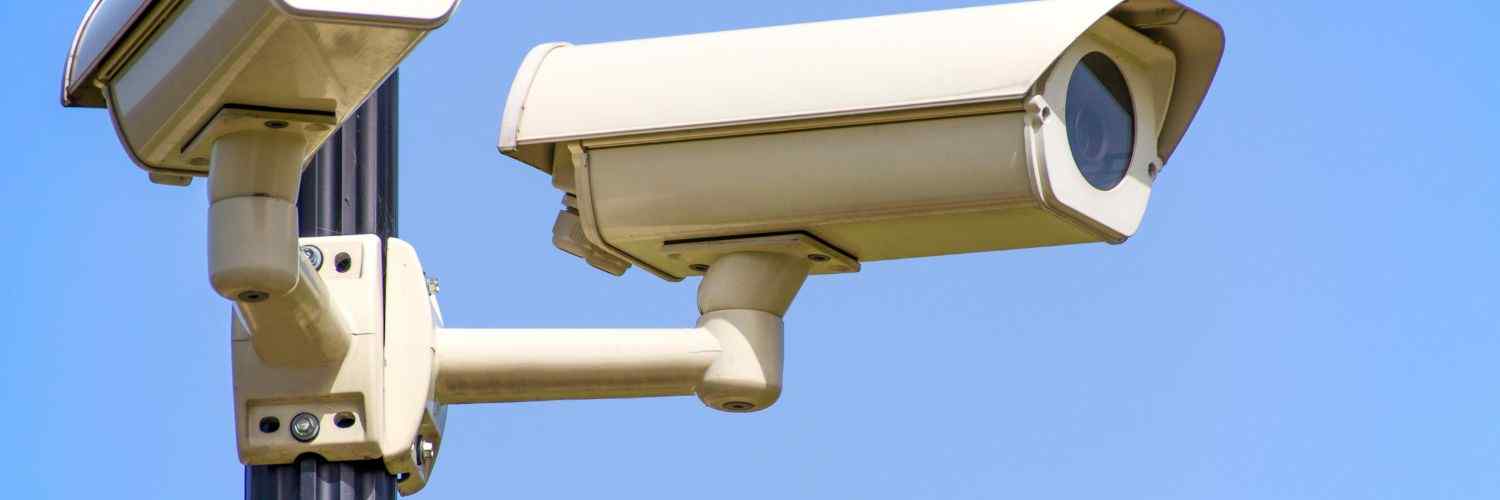More
importantly, you are more likely to make mistakes during a CCTV installation,
resulting in insufficient coverage, unoptimized storage, and insufficient
control. Hiring specialists will remove these issues, and you will have the
peace of mind that you have the finest setup available for your purposes.
When
you employ a competent CCTV
installation specialist, there are still certain things you must consider.
We've compiled a list of some of the most basic yet important factors to
consider when installing CCTV cameras in your home or workplace.
1. Coverage
Traditional
marketing methods such as television and radio ads or newspaper ads can be
quite costly for small/mid-size companies. While larger companies with bigger
budgets may campaign more frequently, newly startups/entrepreneurs might find
traditional marketing out of their league. This is not the case when it comes
to Digital Marketing. Since budget-friendly marketing methods are available in
digital marketing, smaller businesses can now compete equally.
2. Types of CCTV Cameras
Nowadays,
wireless CCTV
cameras are the most widely utilised. They remove the requirement for wire
installation. Furthermore, these cameras are simple to operate. However, not
all CCTV cameras are created equal. The conventional directional camera, often
known as a bullet camera, is stationary and only aims in one direction. On the
other hand, Dome cameras, which are often seen in malls and corporate buildings,
give 360-degree coverage surrounding them. Cameras should be picked depending
on the sort of coverage you want as well as the quality they can give.
3. Locations
This
relates to what we talked about coverage previously. You should not overlook
potentially susceptible locations. This also entails employing various types of
cameras depending on their position. The camera you install outside your garage
door will not be the same as the camera you install inside. That leads us to
the second point: don't overlook indoor coverage. Thieves and burglars are
becoming more adept at evading exterior cameras, and disguised attackers can
even overcome complete area coverage. What these criminals do not anticipate is
the presence of an inside camera. Installing a low-light dome camera indoors
might save you a lot of bother in the long run.
4. Technical Aspects
You
will need to learn some technical information about your security system.
First, check that your cameras are capable of recording HD footage. Consider
the additional equipment you'll require. The majority of CCTV installations
include recording and storage gear. Some additionally include the option of
cloud storage, which means that the recorded video is saved online.
Local
storage, such as on a computer or laptop, is done on a hard drive. The
difference between a camera system's hard disc and your laptop's hard disc is
that the camera on your hard drive has a larger capacity and can function
continuously for a much longer amount of time.
However,
they must be changed regularly. As a result, you must also select how long you
wish to keep each reordered video. You may pick between one day and three
months, or even longer if you have enough storage space. Finally, choose a
system that allows for remote control and access. This allows you to watch and
operate the CCTV camera even when travelling.
We
hope that the ideas presented here will clear up the majority of your questions
about what things to consider when installing a CCTV camera.
After Proofreading
CCTV
installation is more prevalent in workplaces and stores, although there has
been an increase in home CCTV installations in recent years. People still seek
guidance on how to install CCTV cameras, despite their popularity. In any
event, we always advise you to avoid do-it-yourself projects. While it is
feasible to install a security camera system on your own, it is time-consuming.
More
importantly, you are more likely to make mistakes during a CCTV installation,
resulting in insufficient coverage, unoptimized storage, and insufficient
control. Hiring specialists will remove these issues, and you will have the
peace of mind that you have the finest setup available for your purposes.
When
you employ a competent CCTV installation specialist, there are still certain
things you must consider. We've compiled a list of some of the most basic yet
important factors to consider when installing CCTV cameras in your home or
workplace.
Coverage
You
must decide which regions are most susceptible and must be protected. We will
send an analyst to assist in determining the optimum spot to attach cameras for
optimal coverage. You may also tell the professional if there is any particular
location you want the camera to capture.
Types of CCTV Cameras
Nowadays,
wireless CCTV cameras are the most widely utilized. They remove the requirement
for wire installation. Furthermore, these cameras are simple to operate.
However, not all CCTV cameras are created equal. The conventional directional
camera, often known as a bullet camera, is stationary and only aims in one
direction. On the other hand, Dome cameras are often seen in malls and
corporate buildings, give 360-degree coverage surrounding them. Cameras should
be picked depending on the sort of coverage you want as well as the quality
they can give.
Locations
This
relates to what we talked about coverage previously. You should not overlook
potentially susceptible locations. This also entails employing various types of
cameras depending on their position. The camera you install outside your garage
door will not be the same as the camera you install inside. That leads us to
the second point: don't overlook indoor coverage. Thieves and burglars are
becoming more adept at evading exterior cameras, and disguised attackers can
even overcome complete area coverage. What these criminals do not anticipate is
the presence of an inside camera. Installing a low-light dome camera indoors
might save you a lot of bother in the long run.
You
will need to learn some technical information about your security system.
First, check that your cameras are capable of recording HD footage. Consider
the additional equipment you'll require. The majority of CCTV installations
include recording and storage gear. Some additionally include the option of
cloud storage, which means that the recorded video is saved online.
Local
storage, such as on a computer or laptop, is done on a hard drive. The
difference between a camera system's hard disc and your laptop's hard disc is
that the camera on your hard drive has a larger capacity and can function
continuously for a much longer amount of time.
However,
they must be changed regularly. As a result, you must also select how long you
wish to keep each reordered video. You may pick between one day and three
months, or even longer if you have enough storage space. Finally, choose a
system that allows for remote control and access. This allows you to watch and
operate the CCTV camera even when traveling.
We
hope that the ideas presented here will clear up the majority of your questions
about what things to consider when installing a CCTV camera.



























